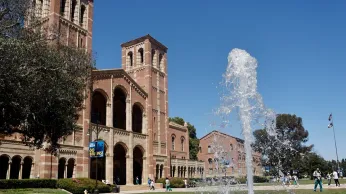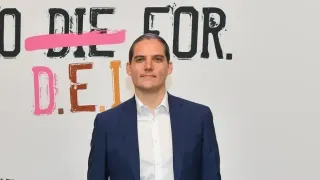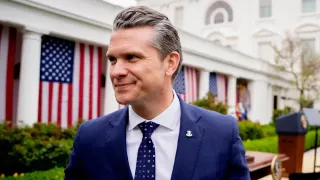
Aug 12
UCLA and UC Leaders Reject Trump Admin Demands Linked to Restoring Federal Research Funds
READ TIME: 3 MIN.
California higher education leaders are signaling resistance to reported conditions set by the Trump administration for restoring federal research funds to the University of California, Los Angeles, including a large monetary payment, the dismantling of diversity, equity, and inclusion practices, and a rollback of protections for transgender students and employees. Public statements and actions by UCLA Chancellor Julio Frenk and University of California President James B. Milliken indicate they are not accepting those reported terms, even as the state and UC system contest the scope and lawfulness of federal funding suspensions.
In recent days, state officials and UC administrators have publicly pushed back on federal actions that froze or disrupted major research grants to UCLA, asserting those moves conflict with court directives and established federal grant procedures. CalMatters reported that the University of California argued a National Science Foundation suspension violated a court order, reflecting the system’s broader strategy to challenge federal pressure tactics through legal and administrative channels.
Coverage by the Los Angeles Times described California Governor Gavin Newsom and the UC system as entering “uncharted territory” as they contest funding penalties and demands linked to campus climate controversies, including allegations related to antisemitism and university responses. While the precise terms of federal requests are still emerging, the article underscores that state and UC leaders are coordinating a response that defends institutional autonomy and existing civil rights commitments.
LGBTQ+ policy journalist Erin Reed reported that UCLA leadership has rejected demands characterized as requiring the university to pay a substantial settlement, end diversity, equity, and inclusion frameworks, and roll back protections for transgender people—policies that are foundational to inclusive campus life and compliance with state nondiscrimination laws. Although these reported demands require continued verification, Reed’s reporting aligns with the broader picture of UC officials refusing to capitulate to conditions they view as unlawful or contrary to university values and California law.
Fox News reported that federal officials sought a $1 billion settlement from UCLA tied to allegations involving campus antisemitism, situating the monetary demand at the center of negotiations over restoring research funds. The report places the figure and rationale for the demand on the record from administration sources, adding specificity to the financial aspect of the standoff.
Local student media amplified the funding conflict to the campus community: a UCLA Daily Bruin social media post stated that the federal government is seeking $1 billion from UCLA to restore research funding, following the administration’s suspension of hundreds of millions of dollars in grants. While social posts require caution, the message reflects a consistent narrative emerging across outlets about the size of the proposed settlement and the stakes for UCLA’s research enterprise.
For LGBTQ+ students, staff, and faculty, the reported demand to roll back transgender rights and dismantle DEI policies raises immediate concerns about safety, nondiscrimination, and access to affirming services. UC campuses, including UCLA, have adopted policies that protect transgender people across areas such as housing, healthcare access, name and pronoun use, and campus life—measures grounded in California’s civil rights framework and widely viewed as best practices in higher education. Any federal attempt to condition research funds on the erosion of these protections would clash with California law and longstanding UC commitments to equity.
The UC system’s position, as reflected in its challenge to federal suspensions and the posture of its top leaders, suggests the university intends to defend inclusive policies while seeking avenues to protect research continuity. CalMatters’ reporting on UC’s contention that the grant freeze violated a court order reinforces that the dispute is also a legal one, not merely a policy or political disagreement.
Advocacy groups have historically warned that conditioning federal funds on the rollback of civil rights protections risks harming marginalized communities, including transgender people, by undermining access to education, research opportunities, and campus safety. As this confrontation unfolds, LGBTQ+ organizations and campus resource centers are likely to mobilize to support students and employees, emphasizing that research funding and civil rights are not mutually exclusive priorities. While broader advocacy responses are expected, the current record is anchored in statements and reporting from state, university, and media sources detailing the funding freeze, the contested settlement demands, and the UC system’s resistance.
What comes next may be determined by court actions and negotiations between the UC system and federal agencies. For LGBTQ+ communities at UCLA and across California, the outcome will influence not only the future of life-saving research and academic progress but also the preservation of inclusive policies that affirm transgender people and other historically marginalized groups. For now, UCLA and UC leadership appear to be standing firm, rejecting demands that would curtail DEI and transgender protections as the price of restoring federal support.






